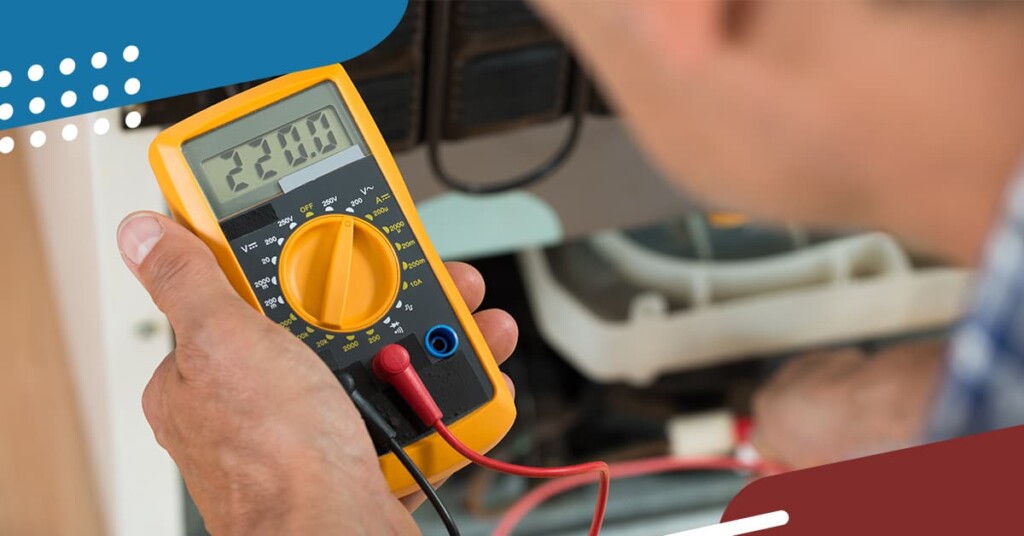SPONSORED CONTENT
How Service Techs Can Use Predictive Maintenance to Prevent Equipment Failures

When it comes to maintaining commercial kitchen equipment, there are three primary approaches: reactive, preventive, and predictive.
Reactive maintenance means fixing something after it breaks. This is usually at the worst possible time for the customer.
Preventive maintenance, while better, still relies on schedules and assumptions rather than actual equipment condition.
Predictive maintenance is a smarter, data-driven approach that helps service techs spot issues before they turn into costly failures. By using sensors, diagnostics, and trend analysis, techs can better plan service visits, reduce emergency calls, and provide more value to their customers.
What Is Predictive Maintenance?
Predictive maintenance uses real-time data and diagnostic tools to monitor equipment and predict when it’s likely to fail. This allows service professionals to take action before a breakdown occurs.
Key components include:
- Sensors and diagnostics that track equipment performance
- Data analysis to spot patterns and trends over time
- Maintenance scheduling based on the actual condition of the equipment
Why Predictive Maintenance Matters for Service Techs
Predictive maintenance is about improving the way you work and deliver service. Here’s how it helps:
- Reduces unplanned downtime for customers, which builds trust and satisfaction
- Improves scheduling by letting you plan visits proactively instead of reacting to urgent calls
- Adds value to your service offering—customers see you as a partner, not just a repair tech
- Prevents expensive breakdowns and helps with planning part replacements more effectively
Tools and Data Sources That Make Predictive Maintenance Possible
Today’s service pros have access to more tech than ever before. These tools make predictive maintenance possible:
- Smart sensors & IoT devices installed on equipment like refrigeration units, fryers, and HVAC systems
- Diagnostic tools like thermometers, multimeters, and leak detectors
- Equipment logs & service history for tracking replacement cycles and spotting early warning signs
Practical Ways Techs Can Implement Predictive Maintenance
You don’t need to overhaul your entire process to start using predictive maintenance. Here are simple ways to integrate it into your service routine:
- Watch for recurring issues, like temperature swings, short cycling, or pressure loss
- Track and monitor high-wear parts like gaskets, motors, thermostats, and valves
- Use mobile apps or digital checklists to record data and identify patterns
- Offer predictive maintenance plans as a premium service for your customers
Recommended Products to Support Predictive Maintenance
AllPoints offers a full lineup of diagnostic tools and high-failure parts to help you stay ahead of breakdowns:
Top Tools:
- Mavrik Multimeter, Clamp True RMS – Accurately diagnose electrical performance
- Mavrik Thermometer – Monitor temperature shifts
- Franklin Timer – Track equipment cycle times
- Mavrik Gas Detector – Detect leaks before they escalate
Stock Up on Common Failure Parts:
With the AllPoints Truck Stock Program, techs can keep high-demand parts on hand for quick, on-site repairs.
Real-World Example
Scenario:
A tech using a clamp multimeter notices abnormal power draw from a refrigeration unit’s compressor during a routine visit. Rather than waiting for it to fail, they flag it for replacement.
Outcome:
The customer avoids a total failure, saves thousands in lost food inventory, and skips the stress of an emergency repair.
Predictive maintenance empowers service techs to shift from reactive fixes to proactive solutions, reducing emergency calls and delivering greater value to customers. By using data, diagnostics, and smart tools, techs can spot issues early, schedule more efficiently, and prevent costly equipment failures.
This approach builds trust, minimizes downtime, and positions you as a true partner in your customers’ success. With the right tools from AllPoints and a proactive mindset, predictive maintenance becomes a practical, impactful strategy for every service visit.
Explore AllPoints’ predictive maintenance tools and stock up today. The best service is the one that prevents the problem in the first place.
RELATED CONTENT
- Advertisement -
- Advertisement -
- Advertisement -
- Advertisement -
TRENDING NOW
- Advertisement -
- Advertisement -


